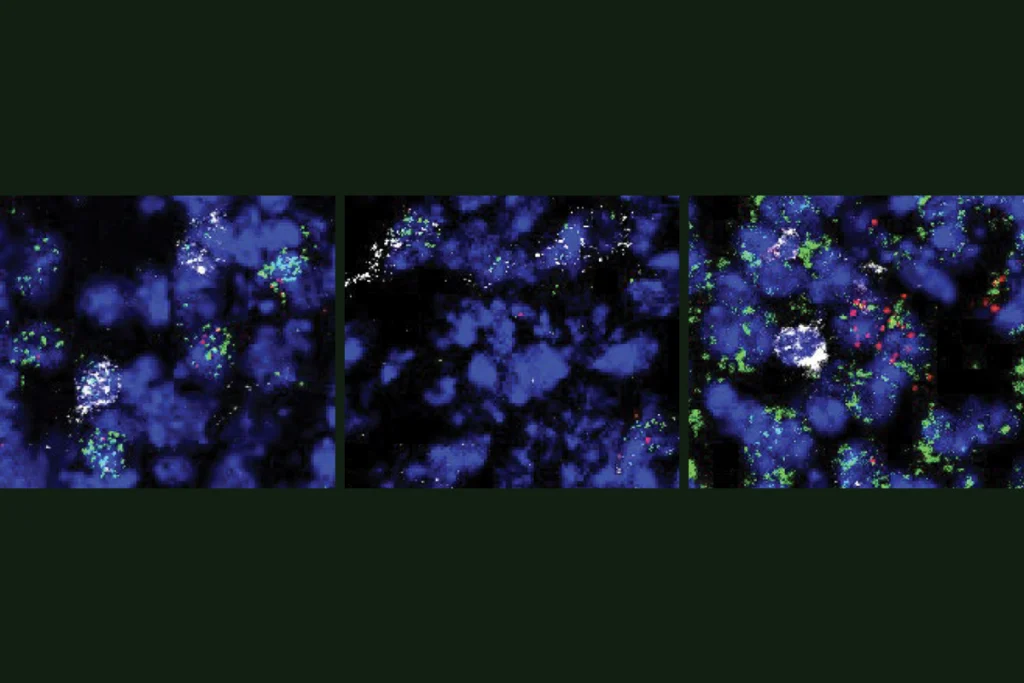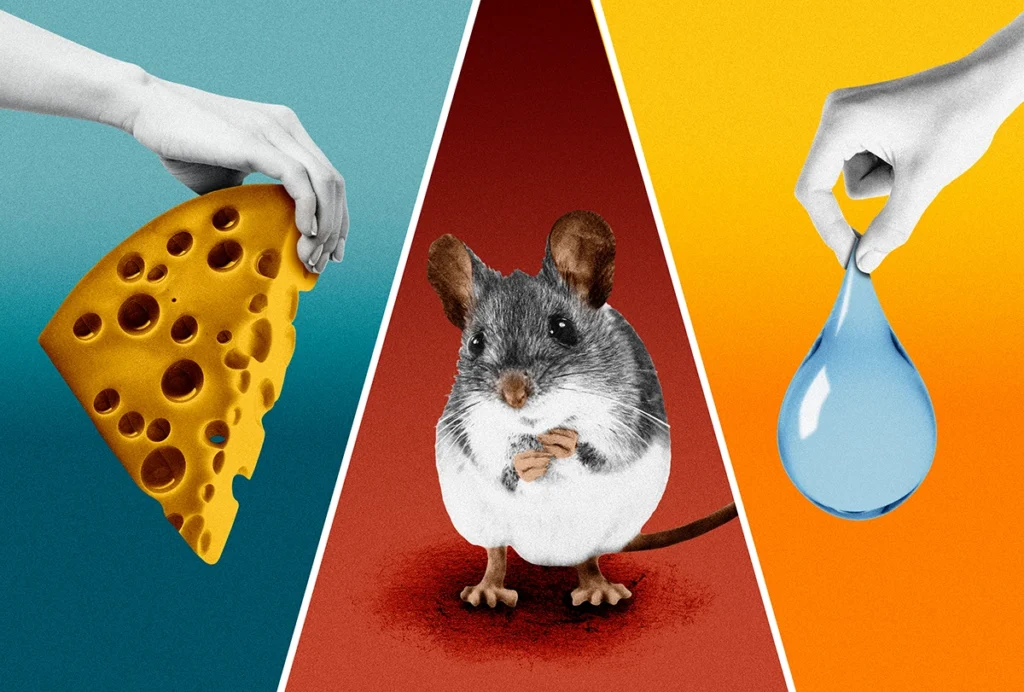Appetite regulation
Recent articles
Novel neurons upend ‘yin-yang’ model of hunger, satiety in brain
The new type of leptin-sensitive cells curb hunger quickly—adding to an increasingly complex picture of brain circuits that control feeding behaviors.

Novel neurons upend ‘yin-yang’ model of hunger, satiety in brain
The new type of leptin-sensitive cells curb hunger quickly—adding to an increasingly complex picture of brain circuits that control feeding behaviors.
Should I stay (and eat) or should I go? How the brain balances hunger with competing drives
Understanding the interplay among rival signals, such as pain, thirst and fear, could provide insights into anxiety and other neuropsychiatric conditions.

Should I stay (and eat) or should I go? How the brain balances hunger with competing drives
Understanding the interplay among rival signals, such as pain, thirst and fear, could provide insights into anxiety and other neuropsychiatric conditions.
Explore more from The Transmitter
Shifting neural code powers speech comprehension
Dynamic coding helps explain how the brain processes multiple features of speech—from the smallest units of sounds to full sentences—simultaneously.

Shifting neural code powers speech comprehension
Dynamic coding helps explain how the brain processes multiple features of speech—from the smallest units of sounds to full sentences—simultaneously.
Astrocytes orchestrate oxytocin’s social effects in mice
The cells amplify oxytocin—and may be responsible for sex differences in social behavior, two preprints find.

Astrocytes orchestrate oxytocin’s social effects in mice
The cells amplify oxytocin—and may be responsible for sex differences in social behavior, two preprints find.
Neuro’s ark: Spying on the secret sensory world of ticks
Carola Städele, a self-proclaimed “tick magnet,” studies the arachnids’ sensory neurobiology—in other words, how these tiny parasites zero in on their next meal.

Neuro’s ark: Spying on the secret sensory world of ticks
Carola Städele, a self-proclaimed “tick magnet,” studies the arachnids’ sensory neurobiology—in other words, how these tiny parasites zero in on their next meal.